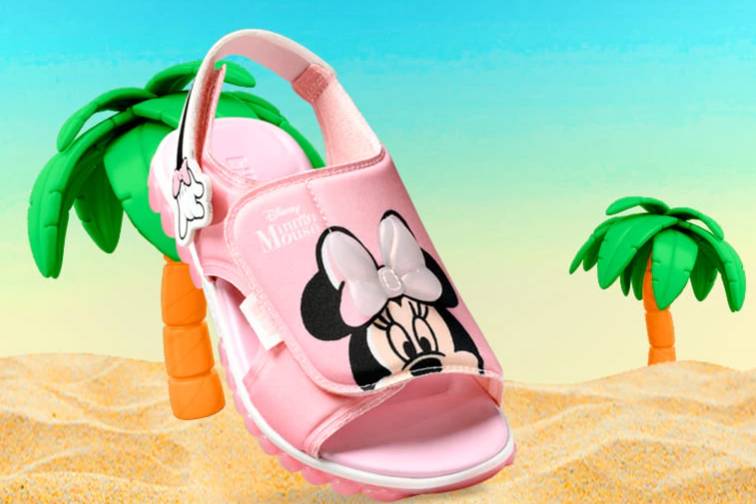Hong Kong craft brewer Breer – a portmanteau of bread and beer – has taken these three baked goods and turned them into cans of beer with a sustainable twist.
While most breweries rely on barley as a main ingredient, Breer mostly uses surplus buns and bread from bakeries to make its beer, thus creating a new life cycle for products that otherwise would have been wasted.
The company was founded by Anushka Purohit, Naman Tekriwal and two others in 2019, when all four were students at the Hong Kong University of Science and Technology.
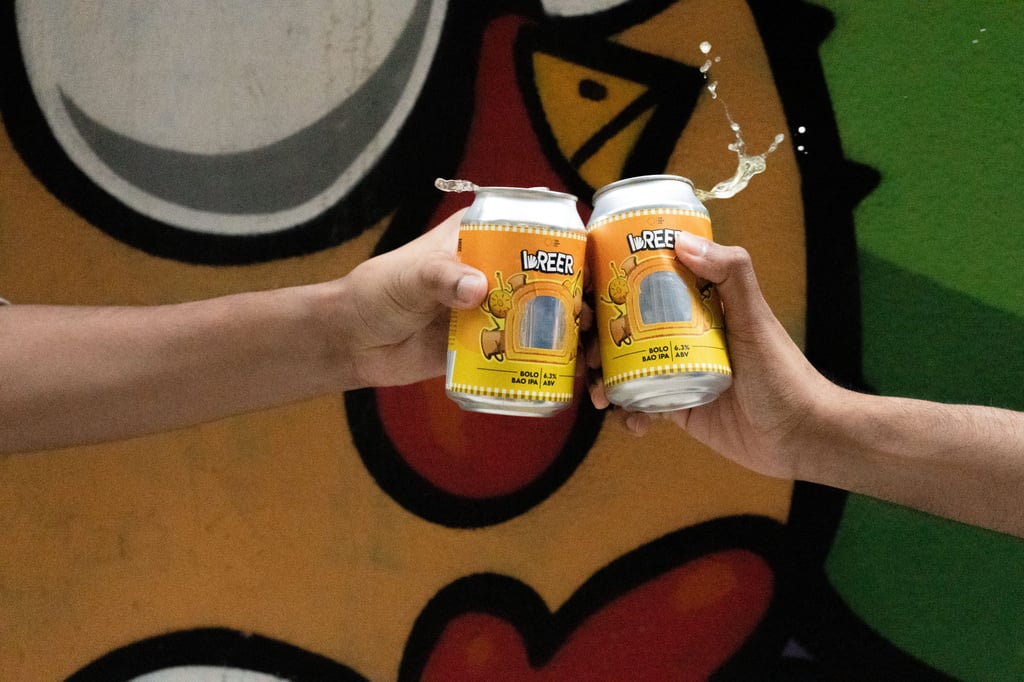
“Stores close towards 9pm-10pm, and you’ll see people take food and throw it away. There are existing solutions, but what works in the Western world doesn’t really work in Hong Kong,” she says, pointing to how Hongkongers prefer to buy fresh food rather than day-old food sold at a discounted price.
After a night out drinking, the four came up with the idea for Breer, and proceeded to participate in several competitions, including the City I&T Grand Challenge, a competition that encourages participants to come up with solutions to challenges that affect the everyday lives of people in Hong Kong.
Since then, the company has continued collecting surplus bread from Maxim’s and other, family-run bakeries to create its beers.
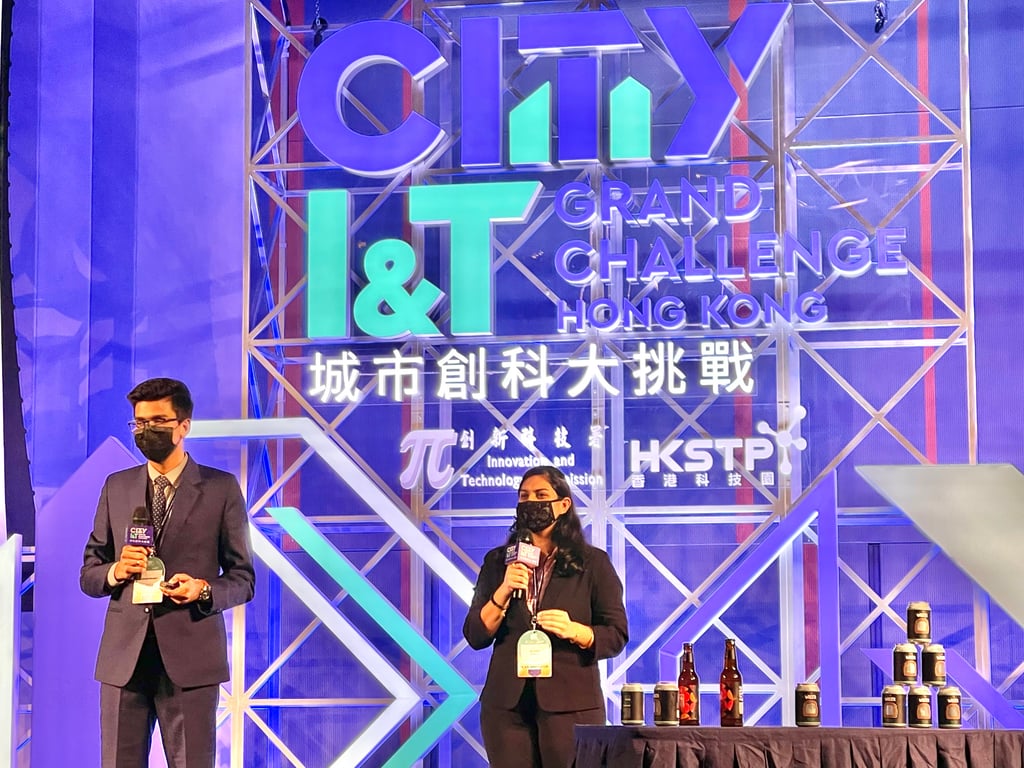
The baked goods are dropped off at contracted local breweries including Carbon Brews, Black Kite Brewery and Yardley Brothers, where the bread is broken up and steeped in water.
Afterwards, the water is flavoured with hops for specific flavours; the whole brewing process takes three to four weeks.
Even though pineapple buns typically do not feature any pineapple flavour – the bun is named after its topping, which visually resembles the fruit – the bolo bao beer is made with hops that impart hints of pineapple, vanilla and coconut, as well as a small dose of lactose, to capture a tropical essence.
As a “hoppier” beer, Tekriwal says, the bolo bao IPA also starts off a bit sweet and ends with a finish that is more bitter.
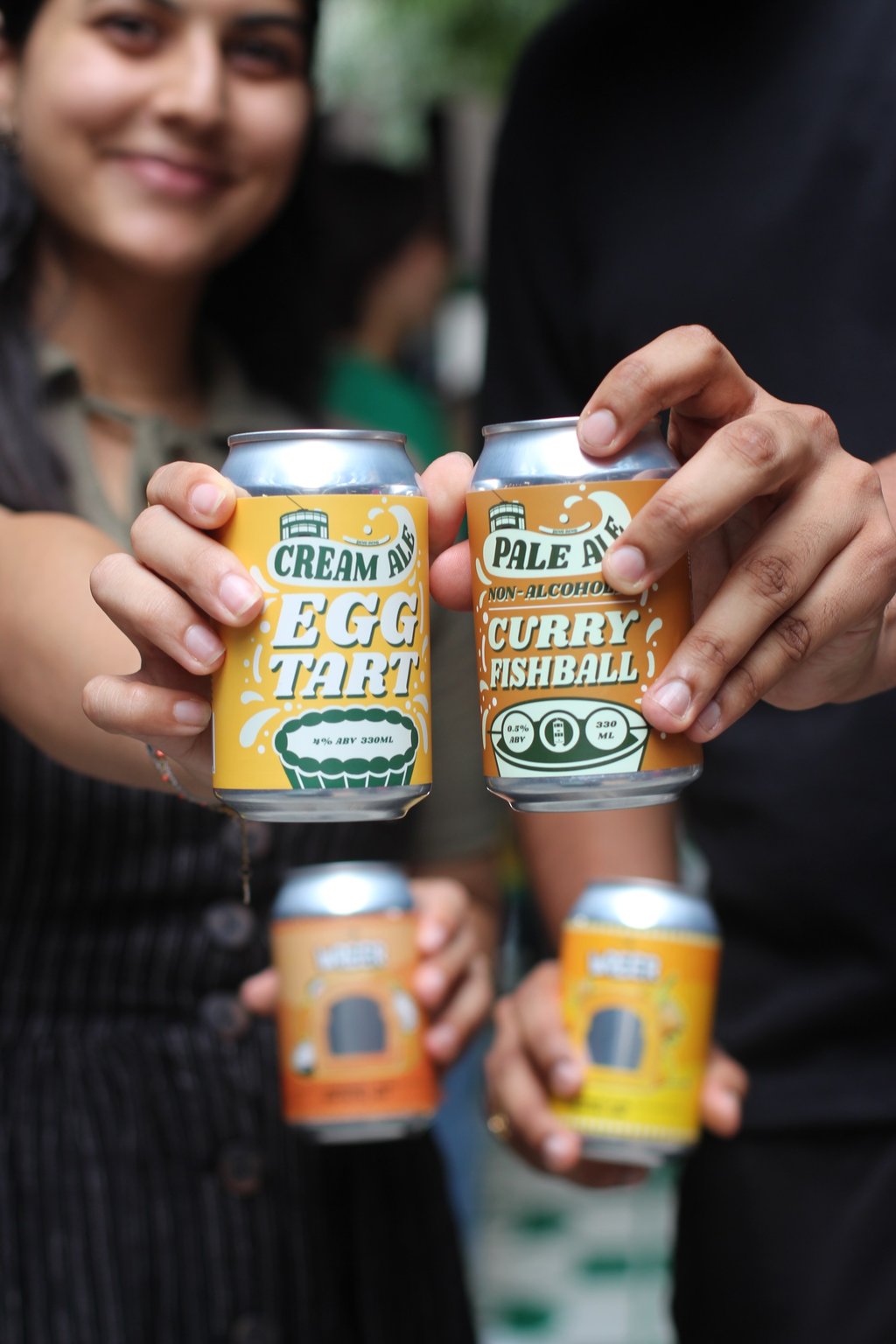
Two years later, Breer has followed up its first Hong Kong-flavoured beer with a non-alcoholic cocktail bun pale ale.
Light and refreshing, the cocktail bun pale ale’s coconut flavour is unmistakable in both its smell and taste. There are also notes of vanilla and the drink very much tastes like beer, despite being made non-alcoholic through a pasteurisation process.
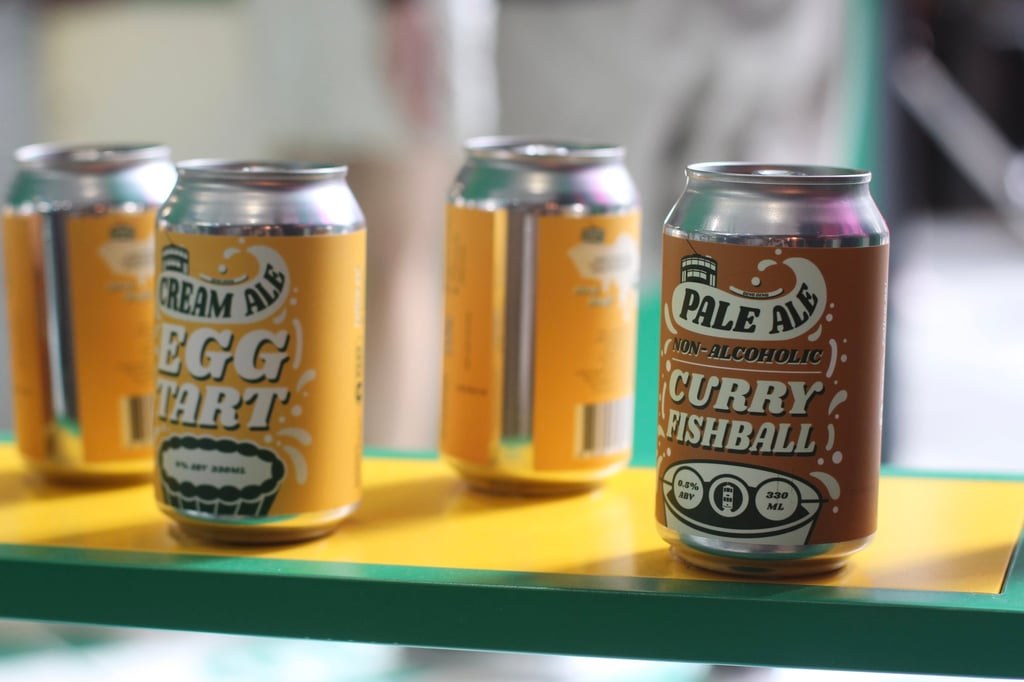
The former does not taste much like an actual egg tart, but is slightly sweet and light, making it easy to drink. “This is very mellow and kind of like a dessert beer,” Purohit says. “I personally think it pairs really well with the curry, because that’s super spicy and in your face.”
Indeed, the curry fish ball non-alcoholic pale ale is more punchy, with a noticeable kick at first sip – all flavour derived from hops, because the beer does not contain actual fish balls.
The partnership also extends to the ingredients for the beers, as the surplus egg tarts and bread collected to make them were sourced from bakeries found along the tram route, Purohit says.
“The idea is, if you hop onto a tram, let’s say from the Central Market stop and you take it around, all the bakeries that you pass by, at least a couple of them would have contributed to the creation of [the beers].”
The two flavours will be available free of charge at the Hong Kong Tramways’ 120th anniversary pop-up store at Central Market, on Hong Kong Island, until September 8, and can be redeemed after visitors like or follow the Hong Kong Tramways and Central Market social media pages.
“When we met the Tramways team, the three things which were very similar in both of our brands are: the tram is a sustainable mode of transport, our beer is sustainable,” Tekriwal says. “The trams are made in Hong Kong, our beer is made in Hong Kong. The tram also really represents Hong Kong as an identity, and our beers also try to do that with bolo bao, cocktail bun and the flavours we’re making with [Tramways].
“So it was a perfect brand alignment story.”




